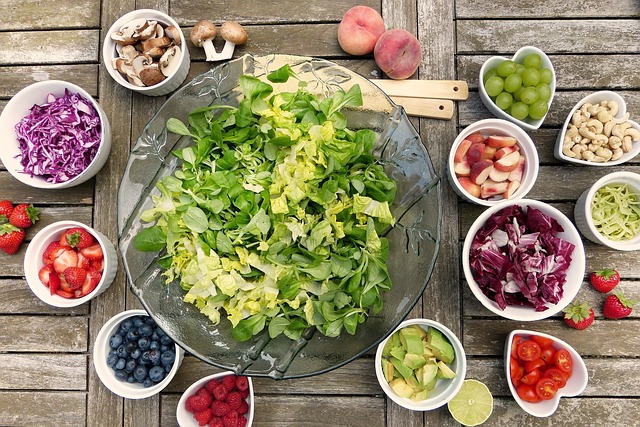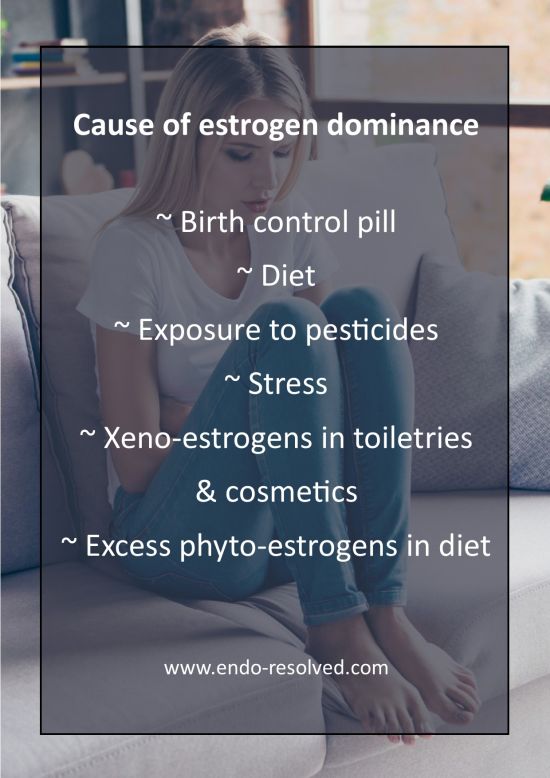Estrogens and your diet for endometriosis

Let’s try and clarify, what can seem a complex and sometimes contradictory subject - estrogens and phyto-estrogens in your diet when you have endometriosis! Let’s start by defining the different sources of estrogen first to hopefully make things clearer.
Estrogens - which are naturally made in the body
Estrogens are primarily made in the female ovaries and also a small amount is made in the adrenal glands . These essential hormones influence growth, development and behaviour (puberty), regulate reproductive cycles (menstruation, pregnancy) and affect many other body parts (bones, skin, arteries, the brain).
Estrodiol is the most abundant and potent estrogen hormone. Estrone and estriol are other types of estrogens.
Estrogen is commonly defined as “any of a family of steroid hormones that regulate and sustain female sexual development and reproductive function”.
Xeno-estrogens - which are chemically based compounds that enter the body and can act like or interfere with the body’s own estrogen hormones.
Many xeno-estrogens enter the body via the food chain with the use of herbicides, pesticides, industrial pollution washing onto pasture land and then consumed by live-stock, and the most widespread toxin on the planet - Dioxin - which mimics the action of estrogen. These xeno-estrogens are also produced by chemicals found in most toiletries, cosmetics and house-hold cleaning products.
Phyto-estrogens - are plant based compounds that act like estrogen in the body and are found in many foods we eat.
Many different plants produce compounds that may mimic or interact with estrogen hormones. At least 20 compounds have been identified in at least 300 plants from more than 16 different plant families. Referred to as phyto-estrogens, these compounds are weaker than natural estrogens and are found in herbs, grains (soybeans, wheat, and rice), vegetables (beans, carrots, and potatoes), fruits (dates, pomegranates, cherries, apples) and drink (coffee).
Most of us are exposed to many of these natural compounds through our diet. The two most studied groups of phyto-estrogens are the lignans (compounds found in whole grains, fibres, flax seeds, and many fruit and vegetables) and the isoflavones (found in soybeans and other legumes). Because scientists have found phyto-estrogens in human urine and blood samples, we know that these compounds can be absorbed into our bodies.
Phyto-estrogens differ a great deal from synthetic environmental Xeno-estrogens, in that they are easily broken down, are not stored in tissue and spend very little time in the body.
There are differing opinions about phyto-estrogens’ role in health. When consumed as part of an ordinary diet, phyto-estrogens are probably safe and may even be beneficial. In fact, some studies on cancer incidences in different countries suggest that phyto-estrogens may help to protect against certain cancers (breast, uterus, and prostate).
On the other hand, eating very high levels of some phyto-estrogens may pose some health risks. Reproductive problems have been documented in laboratory animals, farm animals and wildlife that ate very high (up to 100% of their diet) amounts of phyto-estrogen-rich plants.
Even though humans almost never eat an exclusive diet of phyto-estrogen-rich foods (even vegetarians), those who consume a diet that contains a lot of phyto-estrogen rich soy foods are exposing themselves to health risks. Many convenience foods contain high levels of soy in various forms, and these can build up in the body over time.
Phyto-estrogens behave like hormones, and like hormones, too much or too little can alter hormone-dependent tissue function. For this reason, women with endometriosis need to adjust their diet so as not to include too many phyto-estrogen rich foods.
However, having some phyto-estrogen in your diet can be beneficial and can actually block the estrogen receptors. This will help to reduce the amount of estrogen uptake in your body.
Endometriosis and estrogen
Endometriosis is activated and fed by estrogen - this is well understood and documented. Women with endometriosis need to get their levels of estrogen to a natural balance along with progesterone and other hormones produced in the body.
To help you body eliminate excess estrogen from your body your liver needs to be working efficiently. It is your liver along with other excretory functions like the bowels, that will help your body to eliminate unwanted estrogens. To learn how to support your liver you can find out more HERE
Hormones are very powerful substances. It takes only microscopic amounts of any given hormone to activate a host of changes in the body. For this reason it is difficult to balance our hormones when there are so many outside influences.
It seems like an uphill battle to get estrogen levels back into balance for women with endometriosis. Even men are being affected by the amount of estrogen in the environment. These problems include lower sperm counts and fertility problems. Children are beginning to enter puberty too early because of the estrogen in the environment and the wildlife is also being affected by these same estrogens in the environment.
The way to protect yourself and balance your hormones
- Avoid all foods that have been polluted and contain compounds (xeno-estrogens) that act like estrogens in your body. These compounds are stored in body fat so will not be excreted out of your system. Try to go organic if you can.
- Avoid toiletries that contain chemicals that mimic estrogen for the same reason (If you want to know more about this topic please read this article HERE - which gives you advice about how to avoid toxic toiletries).
- Include in your diet some foods that contain phyto-estrogens - but this must be done in a balanced way as mentioned earlier. The aim here is to take in phyto-estrogens so that they block the pathways and stop your body absorbing xeno-estrogens. If you eat too many foods containing phyto-estrogens then you are defeating the object - you will end up with too much estrogen building up in your system. It is all about balance. But remember, phyto-estrogens pose less of threat to the body as they are much weaker and are not stored in the body.
Reference:
https://www.medicalnewstoday.com/articles/321471.php

About the Author
Hi, I am Carolyn Levett, the Founder here at endo-resolved - I am an Integrative Health Coach having studied nutrition, naturopathy and aromatherapy as well as being a published author of three endometriosis books. I used to suffer from severe endometriosis and was fortunate to be able to regained my health and recover from this disease with the support of nutrition, natural therapies and lots of determination.
My motivation is to help other women with endometriosis to heal their bodies so they may start to overcome this awful disease without having to totally rely on toxic drugs and surgeries which can cause further damage - with healing thoughts, Carolyn.
 As featured in:
As featured in:





